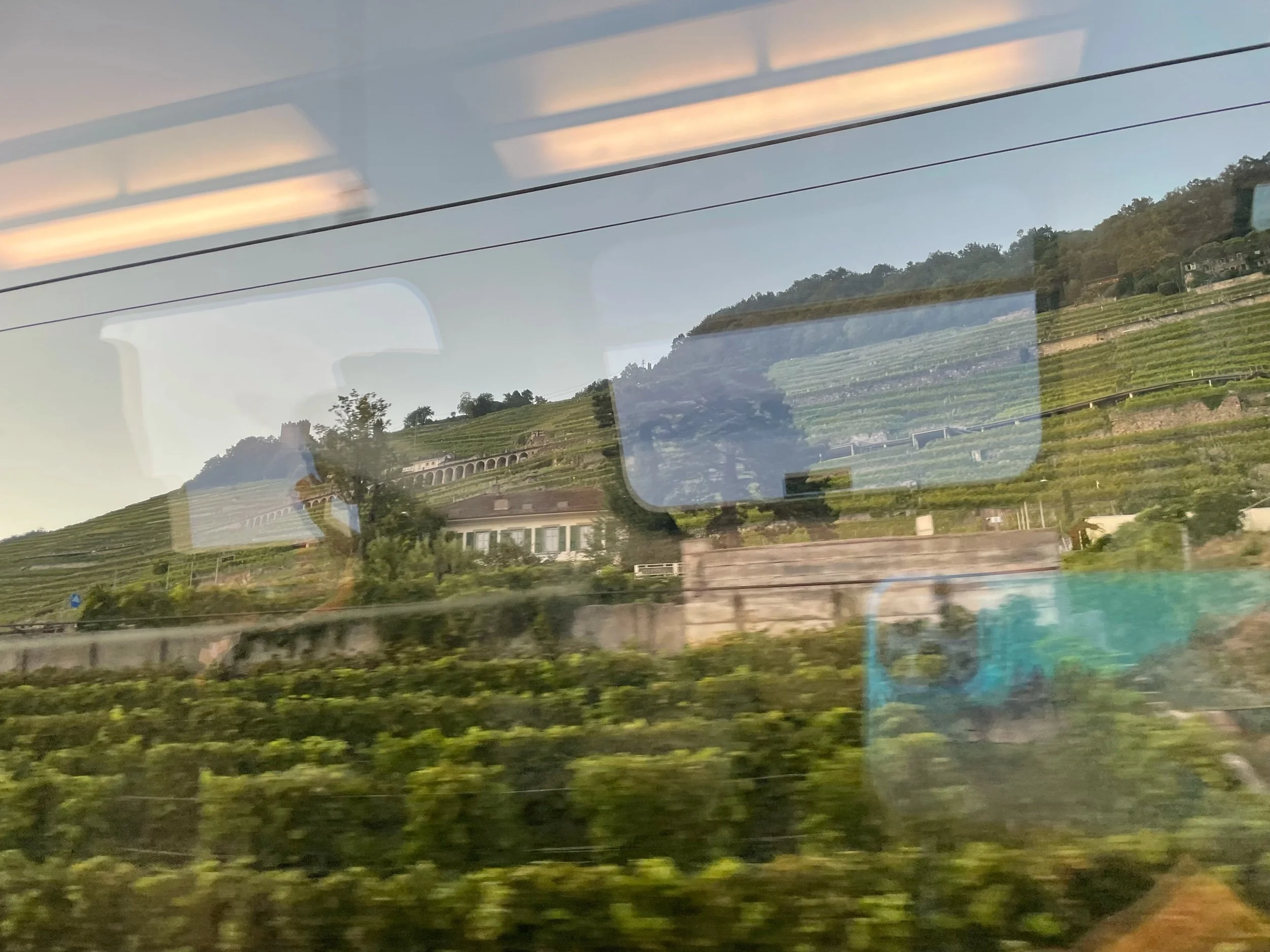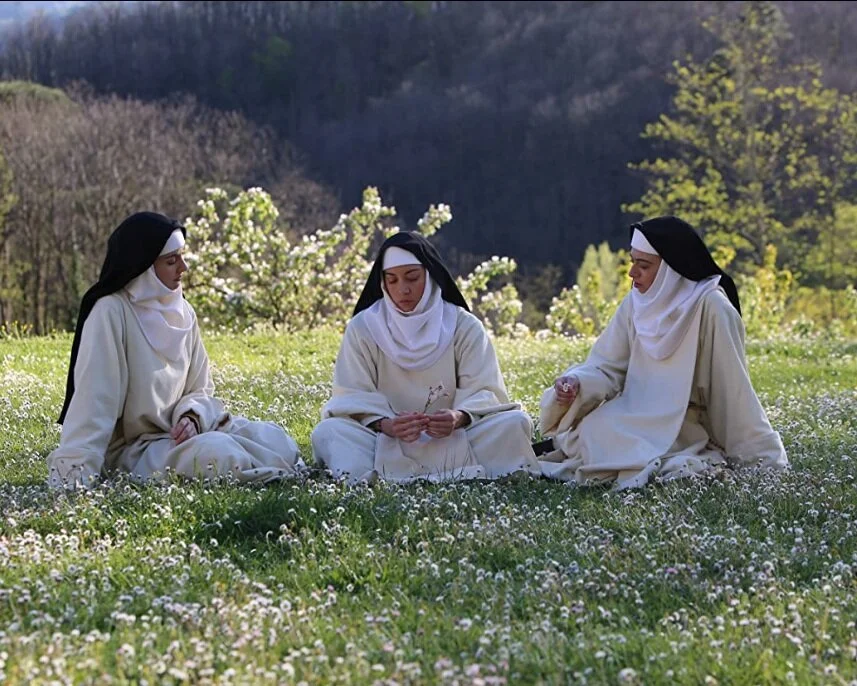What We're Reading, Vol. 29: December 2020
Photo by Olivia Gündüz-Willemin
December arrives yet again, and with it an end to what has been a complicated and difficult year. While we continue as always to grip the comforting pages of our dear literature, it would not be fair to readers suffering through a block or two to pretend we are without our own impatient struggles. As it were, life happens, and sometimes we just can’t do it. BUT, we move on, and hope that amongst all of the abandoned titles, a diamond lays in the rough. Here, to cap off 2020, a few of The Attic’s editors and writers share some thoughts on reading slumps, and the titles that finally got us through it. We hope that 2020 has been a healthy year for all of our dear readers, and that you have all found the reads you needed at whatever time they arrived. We can’t wait to keep sharing this makeshift book club with you all in 2021. Happy Holidays!
Here’s what we’re reading this month:
Sarai Seekamp
I’ve had a particularly difficult time making time for personal reading the past few months. Adjusting to teaching 9th grade English completely online has been a bit of struggle and a majority of my “free time” gets lost in the vacuum that is planning, setting up virtual modules for students, and prepping texts to teach. That being said, I’ve pushed myself to spend at least 15-30 minutes each day reading and writing for myself. I recently picked up Future Home of the Living God by Louise Erdrich and at the time of purchase, I had no idea what it was actually going to be about. My love affair with Louise Erdrich’s writing began years ago when I read Tracks for the first time and followed me relentlessly through Round House, Antelope Wife, Four Souls, and of course Love Medicine. This particular novel stands out from her others by exploring a near dystopian future in the United States (reminiscent of what Atwood’s The Handmaid’s Tale has given us) at a time when scientists discover that evolution is going backwards and the narrator, a pregnant Indigenous woman in her mid-twenties, writes letters to her unborn child. So far it is stimulating, utterly captivating and I’m looking forward to finishing it!
On my list for the two-week Winter Break at the end of the month are Claudia Rankine’s Just Us, Yaa Gyasi’s Homegoing, and a G. Thomas Couser’s 2012 Memoir: An Introduction as a way to kick off my memoir research. Here’s to hoping that by 2021 I can get myself into a more stable work routine that allows me to prioritize personal reading and getting lost in the brilliant words of newly found creators!
Amy Richardson
I was on furlough for most of England’s November lockdown and yet I read curiously little. I was working through The Good Immigrant ed. Nikesh Shulka as a Learning and Development book for work and also slowly devouring The Shadow King by Maaza Mengiste. Both of these books are excellent and deserve to be read slowly. The Shadow King I found particularly compelling as although I had heard of Haile Silassie, I had no idea about the invasion of Ethiopia by the Italians under Mussolini in 1935 or the ensuing war which ended as the Second World War raged. The book is both brutal and beautiful and the focus on two imperfect, determined women contrasted against the toxic masculinity of the Italian soldiers made for a compelling narrative. I just couldn’t read too much at a time, it was too intense. I followed this with The Doll Factory by Elizabeth Macneal, which is set in 1851 and uses both the Great Exhibition and the Pre-Raphaelite Brotherhood as a setting for a twisted, intense novel about obsession and freedom. It was not what I expected, but I enjoyed it nevertheless!
I’m now back to a non-fiction and fiction combo with my reading; The Private Lives of the Saints by Janina Ramirez and Winter by Ali Smith. I am very behind on Smith’s Seasons Quartet so I have decided to read the remaining three at the right time of year. I love her writing and Winter is proving to be no exception. Lyrical, unusual, beautiful. I love it.
Next up will be my traditional Christmas Classic - I’m going to see what my parents have lying around the house this year - and Stacey Halls’ The Foundling. Her previous book The Familiars was one of last year’s surprise loves so I’m looking forward to seeing what this brings! I will also try to fit in rereading A Christmas Carol on the 23/24 December as I attempt to every year and very often fail to. Let’s see how I fare this time around.
Zoë G. Burnett
The end of this ridiculous year has come up quickly, and I too have had trouble just sitting down and reading amongst everything. Between consuming prehistoric and Ancient Egyptian nonfiction to remove myself from current times, Ghost Wall by Sarah Moss was also a walk through another time and another place. Much like Deborah Larsen’s The White, her almost complete lack of punctuation adds to the poetic nature of her bleak, carefully kept prose. It also lends the omnipresent reader a disorientation that situates them in the story as a ghostlike figure, aware of all time and space. Her newest book Summerwater is next on my list, alongside the third book in Jean M. Auel’s Earth Children series. I’ve stopped making excuses for the latter.
Caitlin Carroll
I’ve been on a nonfiction kick this month, moving between Masha Gessen’s study of Russian autocracy, The Future is History, and John Freeman’s anthology of ecological essays, A Tale of Two Planets. They’re both fascinating, if grim. Usually I would veer away from tough faire during the holidays, but right now it’s oddly soothing. I do feel like sci-fi is going to be next on the docket, I keep glancing at Wanderers by Chuck Wendig, Binti by Nnedi Okorafor, and the Descender comics.
M.A. McCuen
I’m continuing to get back into reading after my early autumn slump. Last month, I read The Doll Factory by Elizabeth MacNeal. I think this book could really appeal to Attic readers as it takes place in the world of the Pre-Raphaelite Brotherhood where the protagonist Iris is a muse for one of the artists. The Victorian world was enthralling to read about with a good amount of dreaminess and griminess. The ending, however, was quite creepy and the novel became a bit of a thriller. To contrast to something lighter, I read Tell Me Three Things by Julie Buxbaum next. This light YA romance was cute and highly readable. It’s always nice to read something soft and sweet to start the holiday season!
Raquel Reyes
To say, as others here have, that my reading has been all over the place lately would be an understatement. Sadly, the latter half of 2020 has seen my motivation plummet to levels I didn't even anticipate. I have begun and stalled during several reads (to say of my personal failures, not to the quality of any of said books). Alas, we charge forward. At the moment I am finding myself comforted by familiar voices. Earlier this month I reread Adam O’Fallon Price’s The Hotel Neversink, an atmospheric family novel turned modern gothic mystery published by Tin House, who gifted to me an advanced copy last year upon its publication. I’ve read it a couple of times now, as it perfectly captures its characters’ lives, mirrors my own current atmosphere of foggy mornings and dreary rainy afternoons, and delivers a satisfying ending to its overarching plot. Fans of Ann Patchett’s The Dutch House (another emotional reread) might enjoy the familiar feelings around generational dramas and haunted (emotionally and literally maybe???) grand houses.
Another familiar voice I’ve just picked up again — after reading a selection of her work early this year — would be that of poet Yesika Salgado. I’m a fan of her work not only as someone with a similar background (we are both Latin American women born and raised in Southern California) but because her voice resonates and captures emotion in a raw, unapologetic tone that I love to see in publishing and that always sings to me in poetry. I feel as though I’m still working to find myself reflected back to me in literature, something I hadn’t even realized I had never found before the entire “diversity in literature” conversation arose so heavily this year and which I suddenly felt the absence of so desperately. Her poetic trilogy of Corazón, Tesoro, and Hermosa are not exact matches, but with their descriptions of womanhood, pain, love, and family, I’m glad to say they are the closest I’ve come to finding something like it.
Next up I will be searching for my winter reads, namely among them getting my hands on a copy of Ali Smith’s Winter, and finally picking up Amor Towles’ A Gentleman in Moscow. Towles’ Rules of Civility is my forever winter re-read, and his second novel, about a man quarantined against his will in a glamorous, yet questionable, hotel, seems like the perfect send off for 2020.










In a personal essay, Elizabeth Slabaugh visits the disappointments and realization of tempered dreams around traveling to Oxford after not being able to spend a semester at the university due to chronic illness.